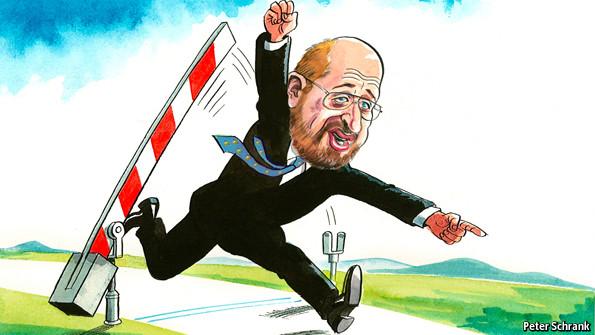
AT THE “Parlamentarium”, the snazzy visitors’ center of the European Parliament in Brussels, an exhibit displays video messages and objects left by leading MEPs. Martin Schulz, the parliament’s president, picked a chunk of masonry: a piece from a low wall that once separated Germany and the Netherlands. “The wall is no longer there, thanks to the EU,” declares Mr Schulz. The European Union cannot claim, like NATO, to have brought down the Berlin Wall, but it can boast of removing internal barriers within the EU.For Mr Schulz, Europeans are rightly jealous of their separate identities; but to preserve them they must be more united. And the place to debate their future is the parliament. It was Nigel Farage, leader of the UK Independence Party, who punctured this illusion: “this is the only parliament in the world that cannot initiate legislation on its own,” he says in his video message. The parliament was the “least important” of the EU’s big three institutions. In a city of many presidents, running the parliament counts for less than running the European Commission (the EU’s civil service) or the European Council (representing 27 governments).Critics of the EU are…

